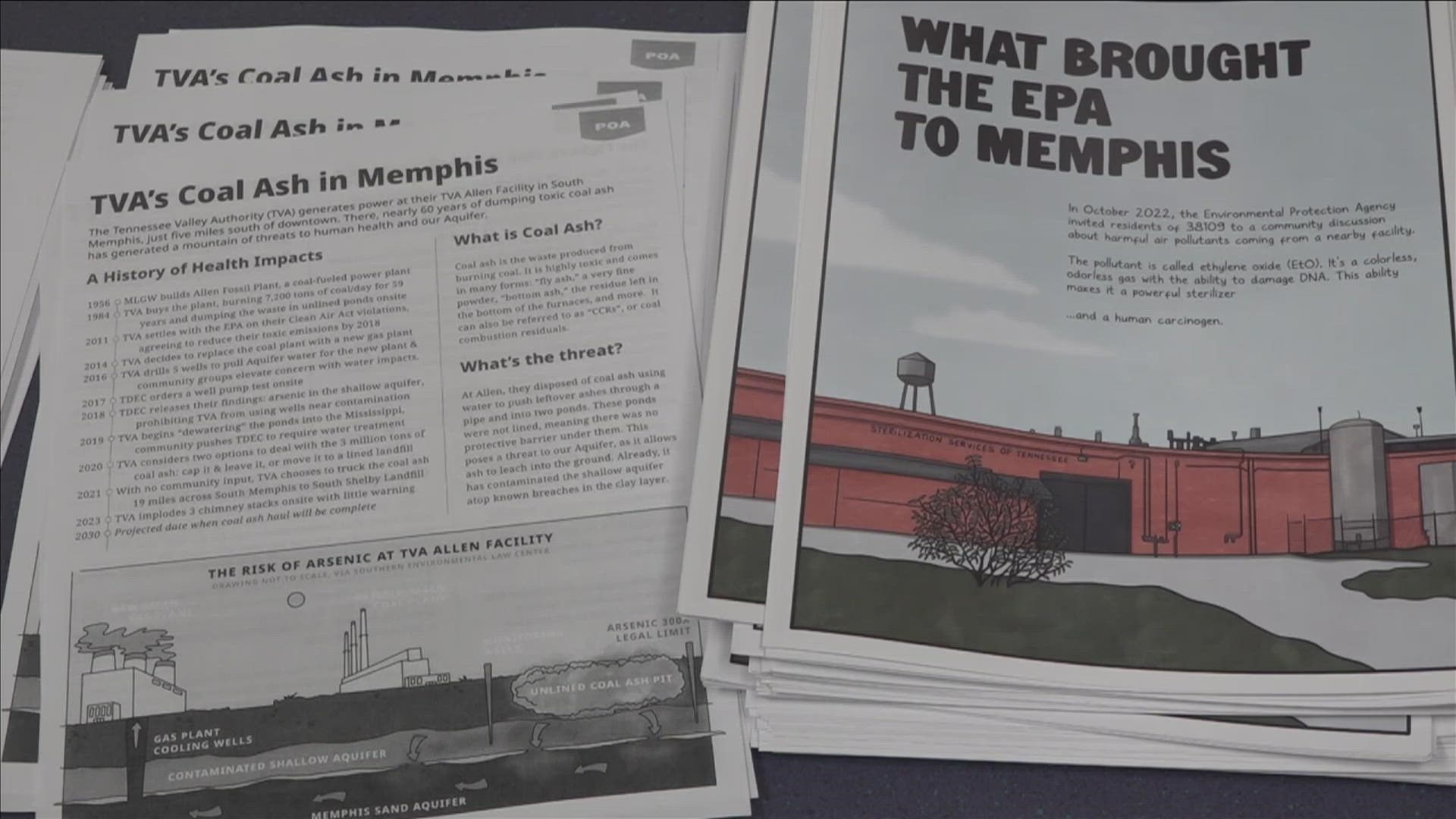MEMPHIS, Tenn. — Lower life expectancies and increasing cancer risks are why one South Memphis neighborhood met on Saturday to discuss changes they want to see from Sterilization Services of Tennessee.
The Environmental Protection Agency (EPA) said a chemical called ethylene oxide has been present in the air around Sterilization Services of Tennessee's building since the 1970s. According to the Union for Concerned Scientists, it has led to 82% of cancer risk in Mallory Heights, the neighborhood in South Memphis.
This risk of cancer in this area is four times higher than the national average.
District 86 state representative Justin Pearson said the only way to get corporations to change what they are doing is to have organized demands and "people-power."
"Here's the reality — our entire county has an 'F' in air quality," Pearson said. "If you continue to allow what's happening in Mallory Heights and Riverview, Kansas and district 86 to not be your problem, you too will breathe less good air. You too will suffer the consequences from it."
The Memphis Community Against Pollution (MCAP) has spoken out against the company for the issues it has caused for homes, churches and schools in the predominantly Black community. In its most recent letter, it was calling for the Shelby County health officer to take urgent action.
The EPA found the presence of ethylene oxide 60 times more toxic than previously understood. In a statement, MCAP said Memphis city ordinances direct the Shelby County health officer to act when the air pollution “creates an emergency requiring immediate action to protect human health or safety.”
“We’re asking the Shelby County health officer to utilize his emergency power to have the facility cease operations or stop their use of ethylene oxide,” said Angela Johnson, MCAP Member.
On Feb. 9, the Shelby County Health Department said it is currently conducting several studies to determine the current impacts ethylene oxide is having on the community. The department adds it plans to release an update to Shelby County Commissioners on March 8.
However, It has still been around half a year since the EPA brought the plant to Memphis’ attention. Those living nearby are calling all levels of government to act quicker, and provide more updates on the next steps.
“We hired an environmentalist to do our own study, they measured the levels, I think they were within normal, but certainly a cause of concern, and then we were working with the federal government to move as quickly as they can,” says Mayor Jim Strickland, “We’ve talked to congressman Cohen about trying to get quicker action.”

